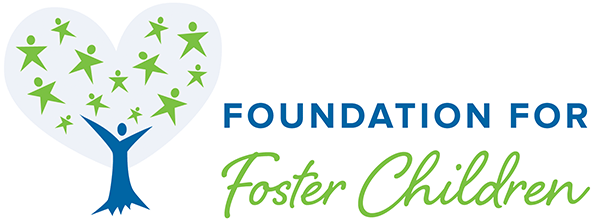Hoping you will stay safe during Hurricane Irma!
The Foundation for Foster Children is encouraging all to stay safe. We are here to assist with disaster preparedness whenever possible and hope you will be safe during this time. Please call 911 in an emergency or the emergency hotline for information. 1-800-342-3557
The Foundation office will be closed until it is safe for our team to return to the office. We hope to be able to help as needed and provide information for preparedness. Please text 407-443-8131 in the event you cannot wait until the office reopens.
Hurricanes are strong storms that cause life- and property-threatening hazards such as flooding, storm surge, high winds, and tornadoes. Preparation is the best protection against the dangers of a hurricane. CLICK HERE FOR MORE INFO
What should I do? .
❏ Listen to an NOAA Weather Radio or the NOAA App for critical information from the National Weather Service (NWS).
❏ Check your disaster supplies and replace or restock as needed.
❏ Bring in anything that can be picked up by the wind (bicycles, lawn furniture).
❏ Close windows, doors and hurricane shutters. If you do not have hurricane shutters, close and board up all windows and doors with plywood.
❏ Turn the refrigerator and freezer to the coldest setting and keep them closed as much as possible so that food will last longer if the power goes out.
❏ Turn off propane tanks and unplug small appliances.
❏ Fill your car’s gas tank.
❏ Talk with members of your household and create an evacuation plan. Planning and practicing your evacuation plan minimizes confusion and fear during the event.
❏ Learn about your community’s hurricane response plan. Plan routes to local shelters, register family members with special medical needs as required and make plans for your pets to be cared for.
❏ Evacuate if advised by authorities. Be careful to avoid flooded roads and washed out bridges.
❏ Because standard homeowners insurance doesn’t cover flooding, it’s important to have protection from the floods associated with hurricanes, tropical storms, heavy rains and other conditions that impact the U.S. For more information on flood insurance, please visit the National Flood Insurance Program Web site at www.FloodSmart.gov.
What supplies do I need?
❏ Water—at least a 3-day supply; one gallon per person per day
❏ Food—at least a 3-day supply of non-perishable, easy-to-prepare food
❏ Flashlight
❏ Battery-powered or hand-crank radio (NOAA Weather Radio, if possible)
❏ Extra batteries
❏ First aid kit
❏ Medications (7-day supply) and medical items (hearing aids with extra batteries, glasses, contact lenses, syringes, cane)
❏ Multi-purpose tool
❏ Sanitation and personal hygiene items
❏ Copies of personal documents (medication list and pertinent medical information, proof of address, deed/lease to home, passports, birth certificates, insurance policies)
❏ Cell phone with chargers
❏ Family and emergency contact information
❏ Extra cash
❏ Emergency blanket
❏ Map(s) of the area
❏ Baby supplies (bottles, formula, baby food, diapers)
❏ Pet supplies (collar, leash, ID, food, carrier, bowl)
❏ Tools/supplies for securing your home
❏ Extra set of car keys and house keys
❏ Extra clothing, hat and sturdy shoes
❏ Rain gear
❏ Insect repellent and sunscreen
❏ Camera for photos of damage
What do I do after a hurricane?
❏ Continue listening to a NOAA Weather Radio or the local news for the latest updates.
❏ Stay alert for extended rainfall and subsequent flooding even after the hurricane or tropical storm has ended.
❏ If you evacuated, return home only when officials say it is safe.
❏ Drive only if necessary and avoid flooded roads and washed-out bridges.
❏ Keep away from loose or dangling power lines and report them immediately to the power company.
❏ Stay out of any building that has water around it.
❏ Inspect your home for damage. Take pictures of damage, both of the building and its contents, for insurance purposes.
❏ Use flashlights in the dark. Do NOT use candles.
❏ Avoid drinking or preparing food with tap water until you are sure it’s not contaminated.
❏ Check refrigerated food for spoilage. If in doubt, throw it out.
❏ Wear protective clothing and be cautious when cleaning up to avoid injury.
❏ Watch animals closely and keep them under your direct control.
❏ Use the telephone only for emergency calls.
For more information on disaster and emergency preparedness, visit RedCross.org
Emergency Shelters
Know shelter information prior to the storm. There are numerous shelters in Seminole, Volusia, Orange, Osceola and other counties.
Seminole http://www.seminolecountyfl.gov/departments-services/county-managers-office/prepare-seminole/stay-informed/shelter-information.stml
Osceola http://www.osceola.org/agencies-departments/emergency-management/shelters/
State Information
Florida’s Source for Traffic Info: Florida511
Información en español: Univision
Attorney General Bondi Activates Price Gouging Hotline: (866)-9-NO-SCAM
Florida Emergency Information Line: 1-800-342-3557
The Florida Emergency Information Line (FEIL) is a toll-free hotline activated at the time of an emergency to provide an additional resource for those in Florida to receive accurate and up-to-date information regarding an emergency or disaster situation impacting the State of Florida.
